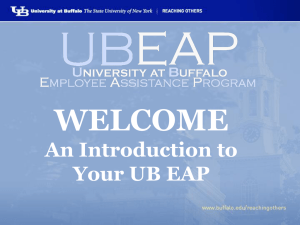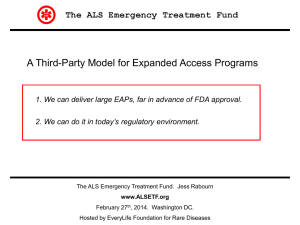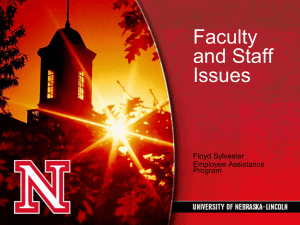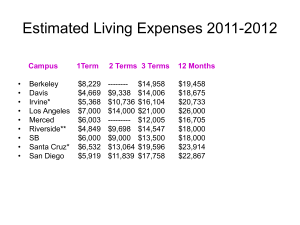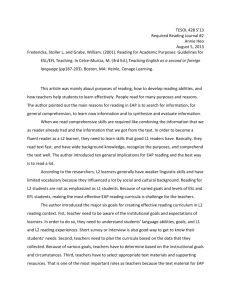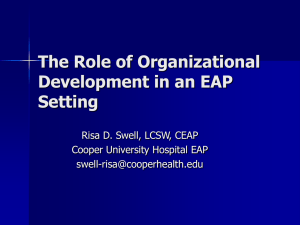Employee Assistance Program Policy
advertisement
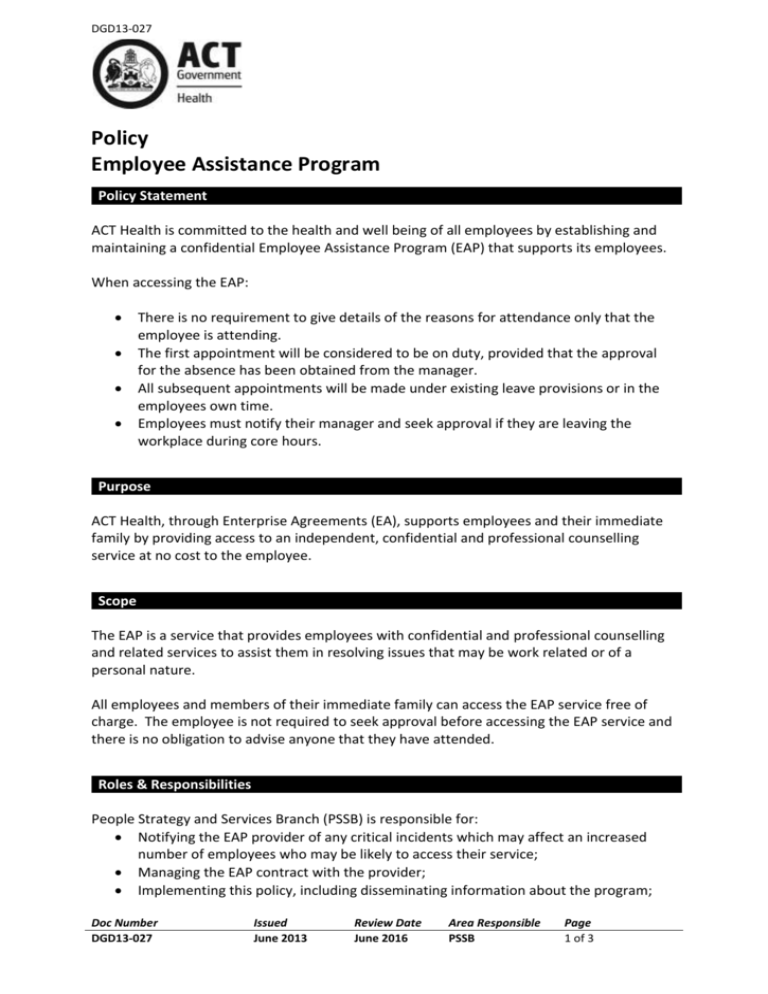
DGD13-027 Policy Employee Assistance Program Policy Statement ACT Health is committed to the health and well being of all employees by establishing and maintaining a confidential Employee Assistance Program (EAP) that supports its employees. When accessing the EAP: There is no requirement to give details of the reasons for attendance only that the employee is attending. The first appointment will be considered to be on duty, provided that the approval for the absence has been obtained from the manager. All subsequent appointments will be made under existing leave provisions or in the employees own time. Employees must notify their manager and seek approval if they are leaving the workplace during core hours. Purpose ACT Health, through Enterprise Agreements (EA), supports employees and their immediate family by providing access to an independent, confidential and professional counselling service at no cost to the employee. Scope The EAP is a service that provides employees with confidential and professional counselling and related services to assist them in resolving issues that may be work related or of a personal nature. All employees and members of their immediate family can access the EAP service free of charge. The employee is not required to seek approval before accessing the EAP service and there is no obligation to advise anyone that they have attended. Roles & Responsibilities People Strategy and Services Branch (PSSB) is responsible for: Notifying the EAP provider of any critical incidents which may affect an increased number of employees who may be likely to access their service; Managing the EAP contract with the provider; Implementing this policy, including disseminating information about the program; Doc Number DGD13-027 Issued June 2013 Review Date June 2016 Area Responsible PSSB Page 1 of 3 DGD13-027 Advising managers of the management of the policy; Advising employees of the details of the policy as it relates to them; and Monitoring cases and trends, evaluating and reporting on the overall operation of the program. Managers are responsible for; Ensuring employees are aware of the EAP program and how they can access it; Ensuring that staff are encouraged to access the EAP when required; Ensuring that any information gained through their position relating to an employee attending the EAP is kept confidential; Managing difficult situations in the workplace professionally and as soon as practicable, including ensuring that appropriate debriefing and support is provided to staff affected by an adverse and/or unexpected event; and Supporting employees through difficult situations in the workplace. Employees are responsible for; Managing their well being and recognising the need for assistance; Attending the EAP when an appointment has been made and if circumstances change and they are unable to attend, advising the EAP service as soon as practicable; Advising their manager and seeking approval if they are leaving the workplace during core hours; and Completing leave forms for absences during core hours to attend appointments with the EAP. Evaluation Outcome Measures ACT Health maintains an EAP that is utilised by staff. Method ACT Health will review the EAP at the end of each contract period with the service provider. Related Legislation, Policies and Standards Legislation Human Rights Act 2004 Fair Work Act 2009 Discrimination Act (ACT) 1991 Sex Discrimination Act 1984 Racial Discrimination Act 1975 Human Rights and Equal Opportunity Commission (Transitional Provisions & Consequential Amendments) Act 1986 Disability Act 1992 Work Health and Safety Act 2011 Health Directorate Enterprise Agreement, 2011 – 2013 Health Directorate (Health Professionals) Enterprise Agreement, 2011 - 2013 Health Directorate (Medical Practitioners) Enterprise Agreement, 2011 – 2013 Doc Number DGD13-027 Issued June 2013 Review Date June 2016 Area Responsible PSSB Page 2 of 3 DGD13-027 Health Directorate (Nursing and Midwifery) Enterprise Agreement, 2011 - 2013 Policies Anti Discrimination, Harassment and Bullying SOP Violence and Aggression by Patients Consumers or Visitors SOP 2 - Managing an Incident Violence and Aggression by Patients Consumers or Visitors SOP 1 - Environmental and Workplace Risk Management Violence and Aggression by Patients Consumers or Visitors Prevention and Management Security Guidelines Women's Health Service - Clinical Supervision and Debriefing for WHS Counselling Staff RACC SW, Psychology, Counselling Involvement in Emergency Responses Definition of Terms Immediate Family means a person who is: a) a domestic partner (including a former domestic partner); b) a child or an adult child (including an adopted child, a step child or an ex nuptial child), parent, grandparent, grandchild or sibling of the employee or domestic partner of the employee; c) a person related to the employee by Aboriginal and/or Torres Strait Islander kinship structures; or d) a child through a care and protection order. Additionally, the Director General may consider that the definition of ‘immediate family’ be extended for a particular decision involving an employee where exceptional circumstances exist. This might include other close family members or an employee who lives alone and has no-one to nominate as ‘immediate family’, may nominate one person, in similar circumstances, for the purpose of caring circumstances. Attachments Standard Operating Procedure Employee Assistance Program – procedural instructions for employees and managers. Disclaimer: This document has been developed by ACT Health, Strategy & Corporate/ People Strategy & Services Branch specifically for its own use. Use of this document and any reliance on the information contained therein by any third party is at his or her own risk and ACT Health assumes no responsibility whatsoever. Doc Number DGD13-027 Issued June 2013 Review Date June 2016 Area Responsible PSSB Page 3 of 3

